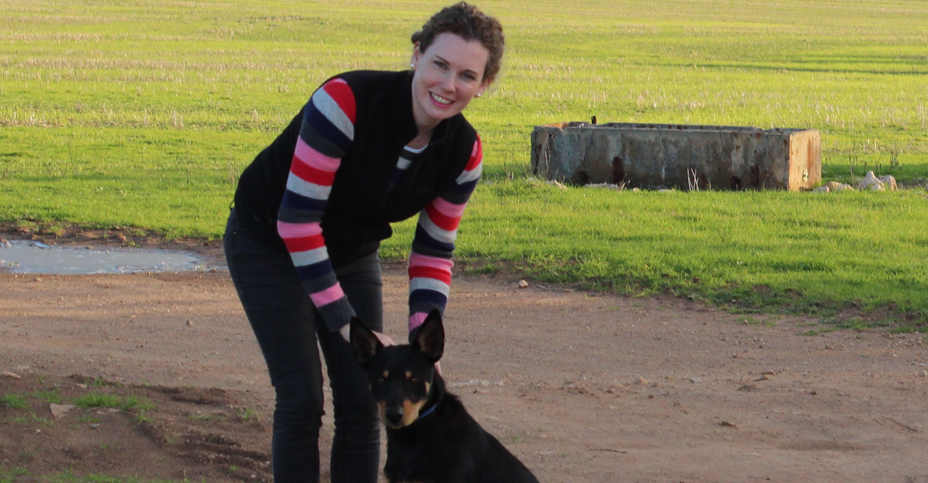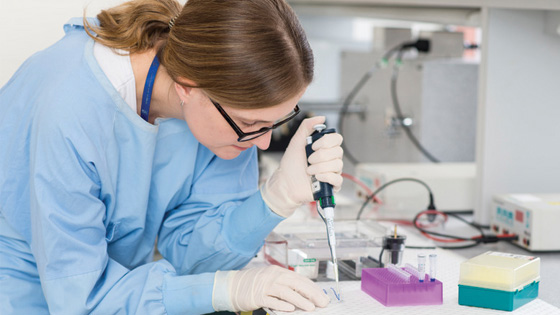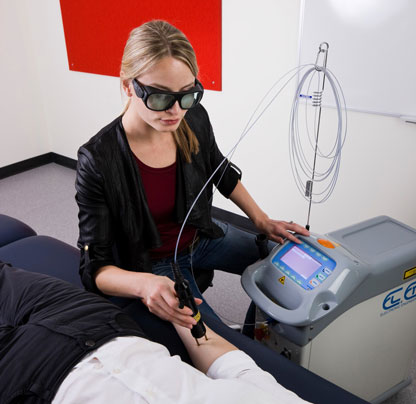
Dr Kate Fennell, Research Fellow at UniSA’s Sansom Institute for Health Research
Dr Kate Fennell, a Research Fellow at UniSA’s Sansom Institute for Health Research and a clinical psychologist, is leading a research team to create an online intervention designed to help Australian farmers to better cope with stress and uncertainty.
This research has been boosted by a $100,000 grant from the National Australia Bank Foundation’s 2016 funding round, with Dr Fennell’s project one of two selected in the rural category of the bank’s Stronger Minds grant program. The work is also being supported by funding from the Freemasons Foundation Centre for Men’s Health and the Sansom Institute for Health Research.
Dr Fennell has experienced life on a farm, having grown up at “Mount Cooper” near Streaky Bay where her parents and brother still live.
“My interest in this topic has grown from witnessing first-hand the challenges family and friends from Eyre Peninsula and around the state, have experienced over the years,” she said.
Dr Fennell’s previous research showed that when two farmers are exposed to the same levels of stress, the farmer who copes most effectively is the one who manages to adopt ‘acceptance’ as a coping strategy.
Her current research will deliver an on-line mental well-being intervention designed in consultation with farmers and built around evidence-based Acceptance and Commitment Therapy (ACT), to help people learn how to accept what is outside of their personal control and take action that enriches their lives.
With widespread challenges accessing mental health services in rural Australia and the high suicide rate among farmers, this world-first online intervention, designed specifically for farmers, will provide an easy and confidential way for them to learn new skills which may in turn prevent the development of severe mental health problems and/or prompt earlier treatment.
Dr Fennell explained: “There are lots of reasons that farmers are different to those who work in other industries. For example, their place of work is also commonly their home, there is often a generational connection to the profession, their success is largely dependent on the weather and commodity prices which they obviously can’t control and they often feel misunderstood by “outsiders”.
“We want to create something that taps into farmers’ way of thinking and acknowledges the fact that they are already very good problem solvers, but may benefit from advice on how to deal with things they can’t fix or that are beyond their control.”
“This low-cost, self-help online resource will be different to what is already available in the mental health space; it will be relevant to people both with and without mental health issues and it will be tailored to the specific challenges, needs, experiences and even sense of humour that people working in agriculture seem to share.”
Dr Fennell and her team which includes Associate Professor Jim Dollman, Professor Deborah Turnbull, Dr Andrew Vincent, Associate Professor Susan Brumby and Dr Camille Short, hope to engage 80 farmers from all over Australia to assist them in developing and evaluating the website which will include videos, interactive exercises, written information, metaphors and humour organised into several modules, and will be supported by tailored messages and a moderated discussion forum.
“To be eligible to assist us with this work, a participant or their partner must currently own or play an active role in the operation of a farming or pastoral enterprise in Australia, be over 18 years of age, be fluent in English and have access to the internet,” she said.
To register your interest in participating in this or related rural-focused research, visit Rural Environments And Community Health

100% of your gift will go directly to support health research at UniSA - there are no administration fees, no overheads and no hidden costs.
Support our researchers continue their work in preventing illness, improving health systems and services, creating more effective therapies, and advancing health equality.
